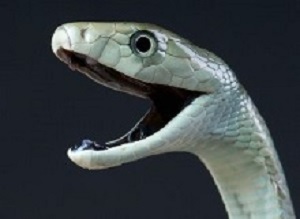 Medical practitioners, healthcare workers and emergency departments in Southern Africa now have access to a new special advisory group of snakebite authorities.
Medical practitioners, healthcare workers and emergency departments in Southern Africa now have access to a new special advisory group of snakebite authorities.
The National Snakebite Advisory Group (NSAG) offers a free national advisory support service to medical personnel, clinicians and centres in both the public and private sector who may need to treat snakebite victims, says trauma surgeon Dr Tim Hardcastle, a member of NSAG and a member of the Trauma Society of South Africa. Thea Litshka-Koen from Swaziland came up with the idea of NSAG after a number of deaths occurred from snakebites there.
“The group has been established with the express aim of assisting in reducing morbidity and mortality from snake bites in Southern Africa. We wanted to make sure that medical practitioners throughout the region have access to, and can be appropriately assisted by, this superb resource of national and international experts,” adds Hardcastle.
The NSAG was officially launched on 17 October in commemoration of World Trauma Day. The group includes medical and trauma practitioners who are highly experienced in snakebite treatment, as well as anti-venom and snake handling experts. It has representatives throughout South Africa, as well as in neighbouring countries Swaziland and Mozambique.
“The NSAG team endeavours to assist in getting snakebite victims to the most appropriate facility for the right treatment in a timely fashion, or to mobilise the necessary resources to get the patient optimal care if needed within a low-resource setting,” notes Hardcastle.
“The members of the group are in constant contact, which enables us to exchange knowledge and expertise on an ongoing basis. They also have considerable knowledge about the snakes within their local regions, which is important as different kinds of snakes and snake bites are more common in some areas than others.”
“For various reasons, snakebites are one of the most difficult and specialised areas of medicine and as some of our medical centres in South Africa see relatively few snakebite cases, there is sometimes an uncertainty about the best course of action and treatment when a patient does present after having been bitten. This may include, for example, whether anti-venom is appropriate to administer and, if so, in what quantity.
“Bites from venomous snakes require the most urgent and appropriate treatment. There are, however, numerous factors involved when considering a snake bite, and those who are not experienced in the treatment of certain kinds of snakebites may feel uncertain about the most appropriate course of action to take.”
Hardcastle explains that among the numerous aspects to consider including what type of snake was involved, whether the snakebite punctured the skin; whether anti-venom treatment is appropriate under the circumstance; the risk of a bite resulting in anaphylactic shock; the best approach to the patient’s wound care, and so on.
“The members of the NSAG are all experts who know exactly what questions to ask in the case of a snake bite. They are all highly committed volunteer medical and snake authorities who share a common commitment in assisting the people of the region who are bitten by snakes, as well as an interest in improving medical outcomes.”
Hardcastle points out that while the NSAG service is only directly available to healthcare practitioners and facilities, there are a number of resources available to the public. These include the Poison Information Centre and the African Snakebite Institute, which offers a special information app from their website://www.africansnakebiteinstitute.com/snakebite/.
Medical practitioners and facilities can contact the NSAG at the following contact details:
KZN Region: (Also covers the Mozambique and Eastern Cape regions)
Dr Tim Hardcastle: Hardcastle@ukzn.ac.za, or +27824681615
Dr Jenna Taylor: jennaleightay@gmail.com, or +27312402450 (Anaesthesia Dept) / +27836314816
Dr Sharadh Garach: sharadh.garach@kznhealth.gov.za, or +27824950135
Dr Christoff Bell: christoffbell1@gmail.com, or +27731740199
Gauteng Region: (Also covers the Free State and Northern Cape)
Professor Dries Engelbrecht dries.engelbrecht@up.ac.za, or +27847897364
Dr Vidya Lalloo vchags@yahoo.com, or +27827002732
Jason Seale zoogang@mweb.co.za, or +27827818498
Arno Naude assist@snakebiteassist.co.za, or +27837399303
Heidi Pfeifer: courses@snakebiteassist.co.za, or +27833747087
Mande Toubkin: mande.toubkin@netcare.co.za (National)
Western Cape (also National or International)
Cape Town Poison Centre: +27861555777
Swaziland
Thea Litschka-Koen: tlitschka@rssc.co.sz or +26876025088
Dr Jonathan Pons: jono@mabuda.com or +26876050680
John Rathbone: john.rathbone2015@outlook.com or +26876445007
